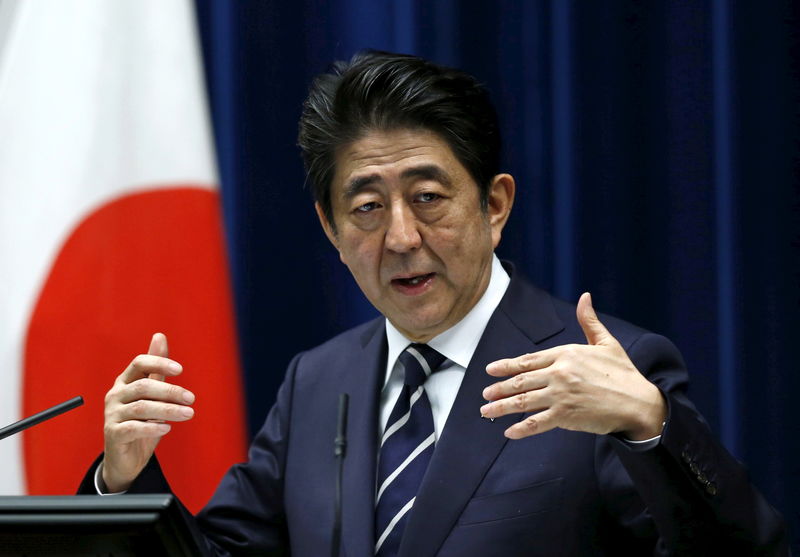By Takashi Umekawa
TOKYO (Reuters) - Influential advisers to Japan's top economic advisory panel will propose cutting personal income taxes to stimulate flagging private consumption, as Prime Minister Shinzo Abe prioritises growth policies with a recession looming.
The four private-sector members of the Council for Economic and Fiscal Policy will present the proposal, seen by Reuters on Friday, to the panel to kick off debate on Monday on the government's annual policy platform, to be drafted by mid-year.
The proposal for "proportional" income tax cuts comes as Abe shifts from austerity to growth, despite a huge and growing public debt, as his "Abenomics" reform programme struggles for traction. His 11-member panel includes Finance Minister Taro Aso and Bank of Japan Governor Haruhiko Kuroda.
The move follows a recent batch of gloomy data, including Monday's BOJ tankan survey, which showed business sentiment soured to a three-year low in the first quarter, while factory output in February fell the most since 2011, stoking fears of another recession.
Abe is set to announce fresh economic stimulus measures before the May 26-27 Group of Seven summit that he will host. Analysts say he will seek to take advantage of the summit to push for growth before upper house elections in July.
Speculation persists that he may call a snap election for parliament's lower house to coincide with the July poll, in a bid to boost his grip on power.
The proposal from the Abe advisers calls for "policies to increase disposable income, including proportional tax cuts" to help Japan escape entrenched deflation.
The measure is couched as a step to cushion the blow from a planned increase in the national sales tax, but Abe is expected to delay that hike for a second time, concerned about sagging consumption in the world's third-biggest economy.
The private-sector advisers will also propose a raft of steps including vouchers to support child-raising.
Abe raised the sales tax to 8 percent from 5 percent in April 2014. The move hit consumers hard, leading to a recession and forcing him to delay by 18 months, until April 2017, the planned second hike to 10 percent.

The advisers include Sadayuki Sakakibara, head of Japan's biggest business lobby Keidanren, and prominent economist Motoshige Itoh. While the proposals will spark panel debate, it's unclear whether they will be reflected in the government's policy platform.